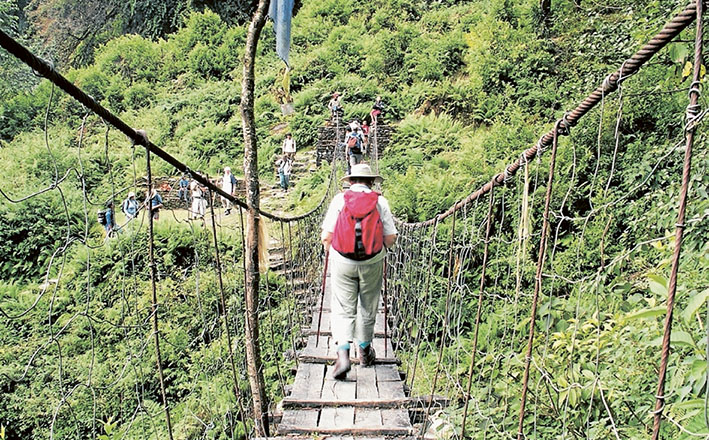
A GROUP of Frankston and Mornington Peninsula residents are making a difference to the lives of leprosy sufferers around the globe, and are inviting others to join the cause.
The Peninsula Leprosy Mission Support Group, a group of 12 people from around the peninsula, has raised more than $12,500 this year, beating its target and fully funding four projects in India, Papua New Guinea, Timor Leste and Nepal.
Hastings member Don Johnston, who joined the group in 2008, said he was moved to tears when he and fellow members travelled to Nepal and saw the suffering and social rejection of leprosy sufferers.
“In Australia a lot of people don’t realise it is still such a huge problem, but it’s a disease that’s still causing huge problems and causing severe amputations and other health problems,” he said.
“When you visit places away from the tourist crowds you see that it is devastating,” he said.
Mr Johnston said the peninsula group raised money by holding a range of social functions, including restaurant nights, quiz competitions and movie sessions, throughout the year.
The money raised will fund training programs for health workers, surgery and health care, rehabilitation and medicine.
“You can cure leprosy with two weeks of treatment, but there are major long-term rehabilitation and medical costs required, and because of amputations and the need to help people become independent, the costs are ongoing,” Mr Johnston said.
Leprosy is a long-term bacterial infection that kills the nerves, and usually results in permanent damage to the skin, limbs, and eyes.
More than 2 million people are affected by leprosy in India alone, and according to Leprosy Mission Australia, one person is diagnosed with the disease every two minutes.
The PLSG meets monthly at various places around the peninsula, including Hastings, Mornington, Mt Eliza and Frankston.
Details: Don Johnston, 5979 2370.
First published in the Southern Peninsula News – 10 January 2017